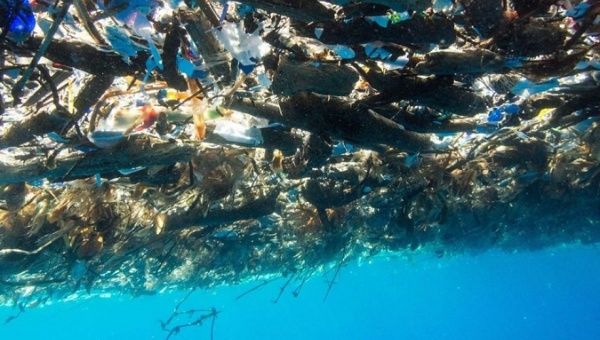For every ton of fish that is caught in all the oceans on our planet there are three tons of garbage dumped into the oceans

For every ton of fish that is caught in all the oceans on our planet, there are three tons of garbage dumped into the oceans.

The beauty and vastness of our oceans have always fascinated humans for centuries. They are home to a rich diversity of marine life and provide us with precious resources. However, our actions have left a devastating impact on these magnificent bodies of water. Shockingly, for every ton of fish that is caught in all the oceans on our planet, there are three tons of garbage dumped into the oceans.

The relationship between fishing and the increasing amount of garbage in our oceans is deeply intertwined. As fishing activities continue to expand to meet the growing global demand for seafood, the collateral damage inflicted on our oceans often goes unnoticed. Fishing nets, ropes, and other gear are frequently discarded and lost during fishing operations, contributing to the accumulation of garbage in the oceans.
Moreover, plastic waste has become one of the biggest culprits in polluting our oceans. Single-use plastics, such as bags, bottles, and packaging materials, find their way into the waterways and eventually make their way to the ocean. It is estimated that up to 80% of marine debris comes from land-based sources, primarily through inadequate waste management systems and improper disposal practices.
The consequences of this excessive garbage in the oceans are alarming. Marine life is severely affected, with reports of entangled or stranded animals becoming increasingly common. Discarded fishing gear, known as “ghost nets,” continues to trap and kill marine mammals, sea turtles, and birds. Microplastics, which are tiny particles resulting from the breakdown of larger plastic items, are ingested by marine organisms, leading to bioaccumulation and potential harm to their populations.
Furthermore, the massive amount of garbage in our oceans disrupts the delicate balance of marine ecosystems. Coral reefs, already under significant threat due to rising temperatures, are suffocating under layers of plastic debris. The garbage also poses risks to human health as contaminated marine products can enter the food chain, impacting seafood consumers.
Addressing the issue of garbage in our oceans requires a collective effort on a global scale. Governments and organizations must prioritize the implementation of effective waste management systems, promoting recycling, and reducing the use of single-use plastics. Public awareness and education campaigns are vital in encouraging responsible consumption and waste disposal practices.
In conclusion, the alarming fact that for every ton of fish caught, three tons of garbage are dumped into the oceans highlights the urgent need for immediate action. We cannot afford to ignore the detrimental impact of our actions on these vast bodies of water. It is our responsibility to protect and preserve our oceans for future generations, ensuring a healthy and sustainable planet for all.
Tags
Share
Related Posts
Quick Links
Legal Stuff

